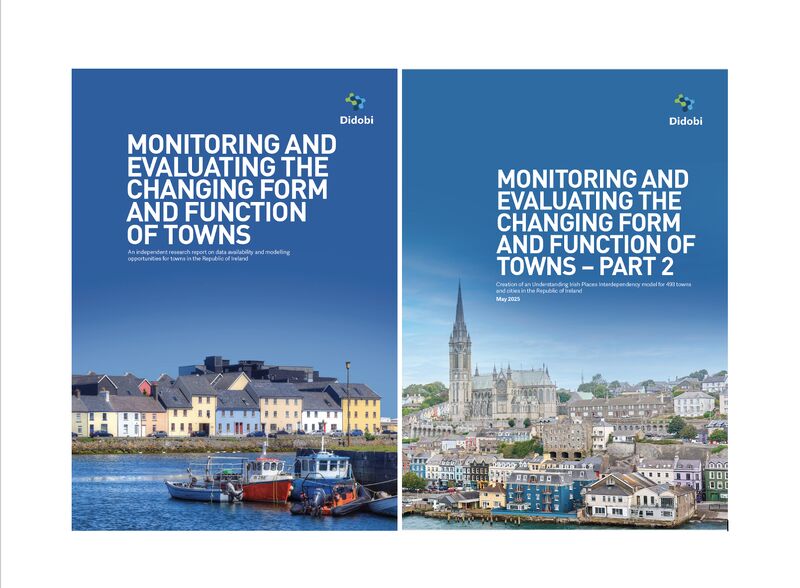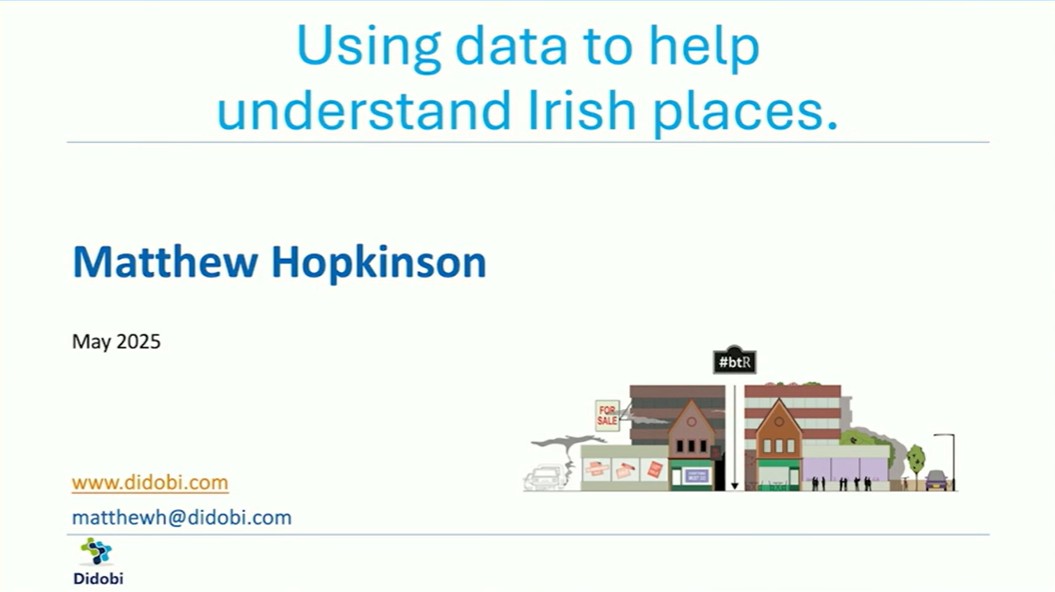
What has 2020 taught us?
As I sit at home having had a Christmas of self-isolation (one of my children tested positive) I have had plenty of time to reflect on the year that is about to end. If anything, like a nightmare, it has appeared to drag on much longer than the reality of the actual clock ticking. Here is what I believe the year has taught us.

Storms, Floods and Covid19
2020 reminds me of bookends with various books in between. We started the year with some of the worst flooding we have seen in decades caused by Storms Ciara and Dennis. February was the wettest February since records began in 1766. Many homes and businesses that were flooded in November were yet again flooded! In Sheffield it even resulted in shoppers spending the night inside the shopping centre as water surrounded the location. It was heart breaking to see towns such as Worksop who have fought so hard to face the challenges facing High Streets to now be facing the devastation of the High Street due to environmental disaster. For many businesses to face this ‘once in a lifetime’, twice in a quarter was the worst that could possibly happen or so we thought!

As towns and communities fought the challenges of the November and February floods the news about a mysterious virus out of Wuhan in China was becoming clearer. What was becoming clear is that the virus was deadly, and it was spreading fast.
Globalisation
The spread of the virus was being assisted by the fact that on an average day around the world there are 102,465 flights being operated. The IATA data reported that in 2010 there were 2.63 billion air passengers and that by 2018 this had risen to 4.4 billion. Of the 2018 numbers the British travelled abroad more than any other nationality with 126.2 million air trips which was 8.6% of all international air travellers.
Italy was the first European country to feel the full impact of the virus with other neighbouring countries following 2-3 weeks later. The pace of the impact of the disease was unprecedented leading to countries locking down and restricting all domestic and international travel as we as business operations including shops, offices, food & drink establishments and leisure & cultural facilities.
In short by the second quarter the world had ground to a halt. No business plan and it appears that no government had run such a catastrophic pandemic scenario where every aspect of the economy has to close down in order to protect the health of its citizens and to curtail further spread of the disease.
As I write the total cases of Covid19 across the world is 80,788, 307 and the number of people who have died has reached 1,764,872 (Source Wikipedia). The International Monetary Fund forecast the global economy to shrink by 4.4% before bouncing back by 5.2% in 2021. Concern has been further accentuated by a mutation of the virus that spreads faster and has resulted in further lockdown restrictions across the UK curbing movement and business operations.

The last few days have seen the return of rain and storms in the guise of Storm Bella to be the bookend of 2021. The latest data from the Environment Agency displayed in Emu Analytics Flood Alerts platform (free to access here) shows 256 flood alerts and again many homes and businesses have been flooded.

Annus Horribilis
So, 2020 has been quite a year and certainly deserves the accolade of Annus Horribilis! Not since the two World Wars have we seen such economic and social impact on our country and the world. Adding to the challenge has been the increasing impact of climate change that has seen storms, flooding, wildfires and drought around the world. The irony is that whilst we have been fighting a health crisis, we have seen decreasing levels of CO2 and other environmental damage as a result of changes in work and travel as a result of the virus. Beyond David Attenborough’s excellent and frightening programme, Extinction: The Facts, is the world itself or a higher power telling us something before it is too late to save ourselves?

So as Ian Dury and the Blockheads sang in 1979, “Reasons to be cheerful, Part 3”, such reasons have been severely lacking in 2020!
Every cloud has a silver lining
That said I am a great believer in every cloud having a silver lining and I do believe there are many things to be cheerful and thankful for as well as lessons to be learnt.
“We don’t develop courage by being happy every day. We develop it by surviving difficult times and challenging adversity.” Barbara De Angelis
We have probably learnt more about ourselves and others in the last year than at any other time in our lives be it in a professional or personal context. I for one have learnt so much and do believe that when we are taken out of our comfort zone we give ourselves the opportunity and fear to learn more, to test the limits of our zone and to try things that we may have once thought impossible.
Until 6th May 1954 many people had thought that running a 4-minute mile was impossible until Roger Bannister did just that – ran a mile in under 4 minutes! 46 days later John Landy, an Australian, beat Roger Bannister’s time and then a year later three runners in one race broke the four-minute barrier. Today the record is held by Hicham El Guerrouj with a time of 3:43:13. If you have belief then change happens quickly.
In our own lives we have been running a challenging race in 2020 and there are many things that we have seen that show that human spirit and endeavour can overcome adversity. We have seen the incredible work of our NHS workers in caring for a tsunami of ill people, the speed that the Nightingale Hospitals were constructed up and down the country, the speed in which vaccines have been created, manufactured and now being distributed and the way in which people have responded in their way to take them out of their comfort zone – be it raising money for the NHS and other good causes as exemplified by Tom Moore, the community service volunteers, the emergency services, the care workers who stayed away from home to keep their patients safe and those who have quite simply been a ‘good neighbour’. What many have done is well summarised by the quote below by Ulysses S. Grant;
“The friend in my adversity I shall always cherish most. I can better trust those who helped to relieve the gloom of my dark hours than those who are ready to enjoy with me the sunshine of my prosperity.” Ulysses S. Grant
The degree to which Covid19 has changed our country and our world has yet to be seen as we are still in the ‘heat of battle’ but change us it will.
Recognising and adapting to change
The form and function of our towns and cities will change. The importance of local shops, the local high street and our community has increased significantly. Be it the people and businesses providing goods and food to the needy, the people fighting community safety issues such as the post Grenfell cladding situation, the volunteers who do so much across such a broad range of tasks or the stranger who takes the time to speak to that person in their hour of need, we have seen some amazing acts of humanity. Long may this last and that the often-misused word of community and all it stands for can have the meaning it deserves.
The importance of having and understanding data has come to the fore in 2020.
No longer is it the domain of business or statos but we have seen data being at the forefront of the scientific and political daily briefings. I am very fortunate to work within the world of data and to work with some amazing pioneers in this space be it data captured by robots, data science visualisation, financial data algorithms, academic research and modelling or working with a number of commercial companies and charities on helping them understand the value that lies in their data. The most important thing to remember though is that data is just the bottom of the value chain (see below).

Data is just the start
Data is everywhere (like sea water – “water water everywhere but not a drop to drink”) and we have the processing power and storage capabilities that have only relatively recently enabled us to harness the value of data and for it to be the ‘new oil’ as The Economist coined some years ago. How to use data and how to apply it to real world problems is the challenge many face.
The volume of data we have to process daily is growing exponentially which means that not only are we adding to the global warming emissions we seek to reduce but we are creating paralysis where we are deep in a data forest (or lake as commonly used) but cannot see where we need to go and how we need to get there. Buying in data scientists, software developers and project managers will not solve the fundamental need for leadership to have clarity of vision and direction and therefore what questions and challenges that data can assist with. Ultimately, we must focus on the need to grow our knowledge as people and the wisdom of organisations.
Many of the organisations, places and people that I meet struggle with how to move themselves and their organisations from data to wisdom. We should not be surprised as such skills are rarely taught and there is no doubt from what I have seen in my 2020 work that having of experience of the challenges in industry and leadership to execute them is key in order for data to become the real asset it should be. The future will be about Augmented Intelligence where data, computers and humans will be able to create an evidence based real time smart way to manage the greatest challenges our world, community and businesses face. As with any innovation we must try many things, fail fast and learn quickly which is where humans will always be in control of our destiny.

My wishes for 2021 are that;
- governments, organisations, communities and businesses look at how they create wisdom from the vast wealth of data they have access to
- that they understand the quality, provenance and currency of the data before they use it and
- they never forget the need to have a clear understanding of the question they are trying to answer and the leadership capability and capacity to see it through
Here is to a happier and healthier New Year where we learn the lessons that 2020 taught us and that we commit to not ignore them because if we do, we do so at our peril and to the peril of future generations.
THANK YOU to everyone who has supported humankind in such a challenging year. I admire the many businesses that have fought so hard to stay viable and pivoted as hard as they could in the face of the unexpected and to the leaders in all walks of life who have never been challenged as they have in 2020. I salute you all.
“Hope smiles from the threshold of the year to come, whispering, ‘It will be happier.” Alfred Lord Tennyson






Leave a comment: